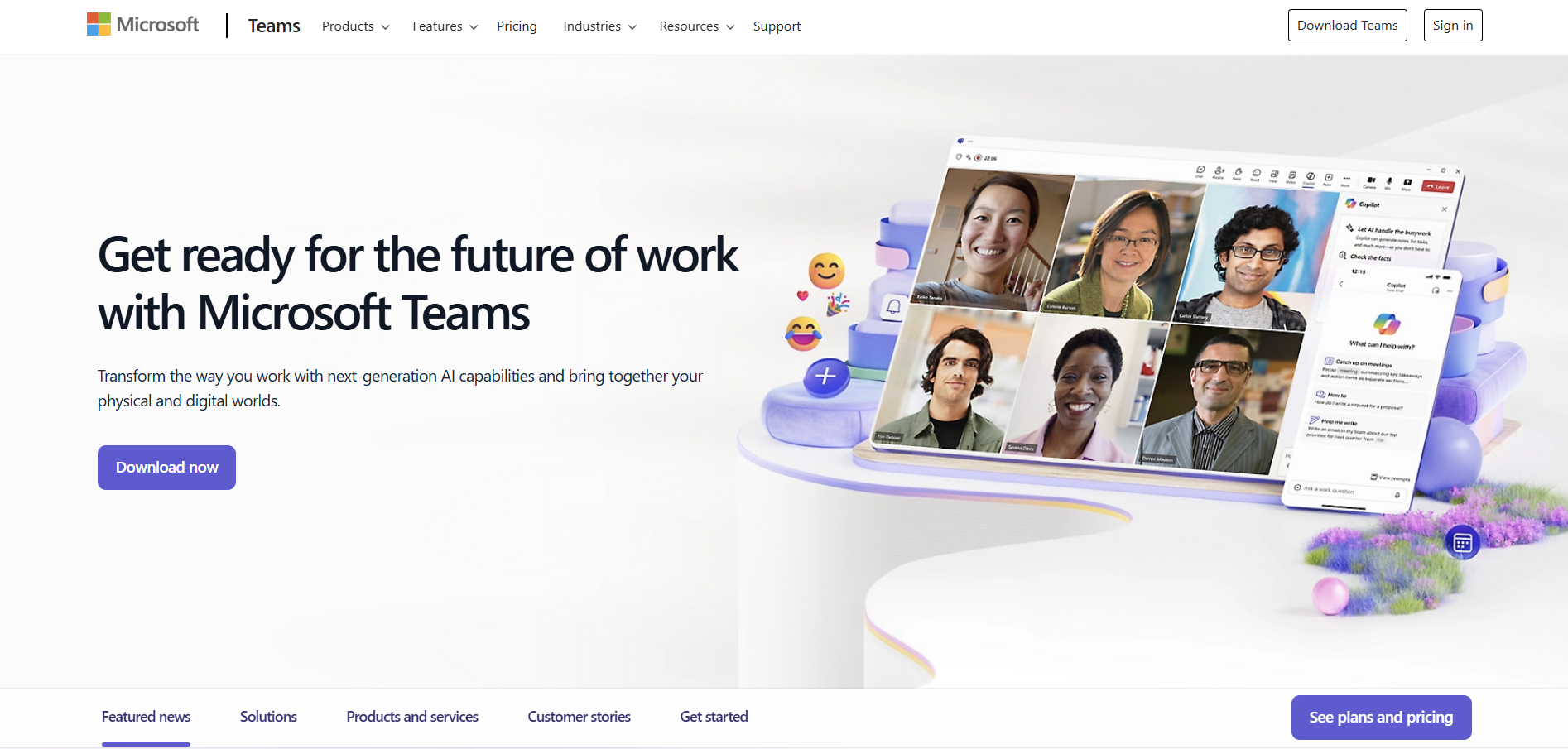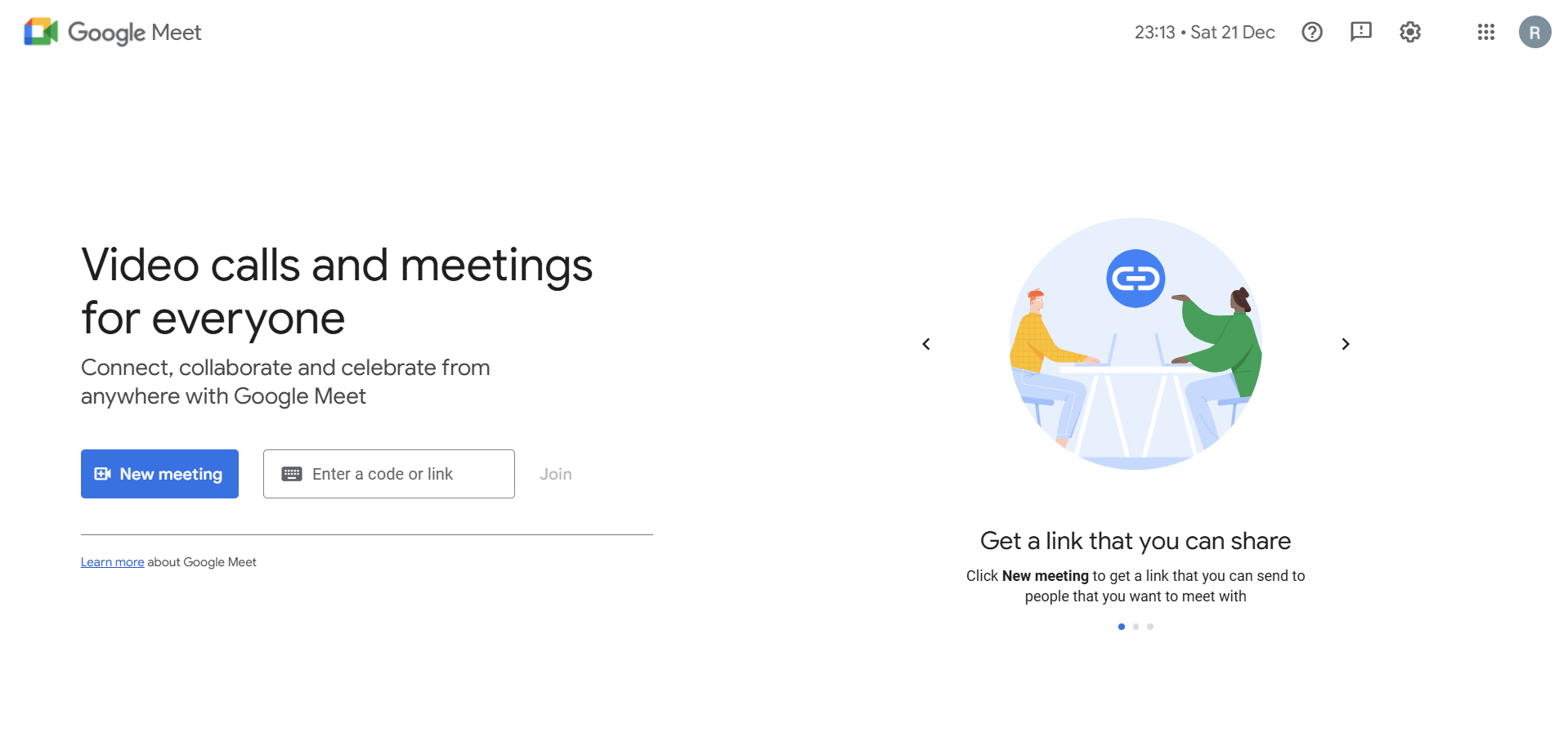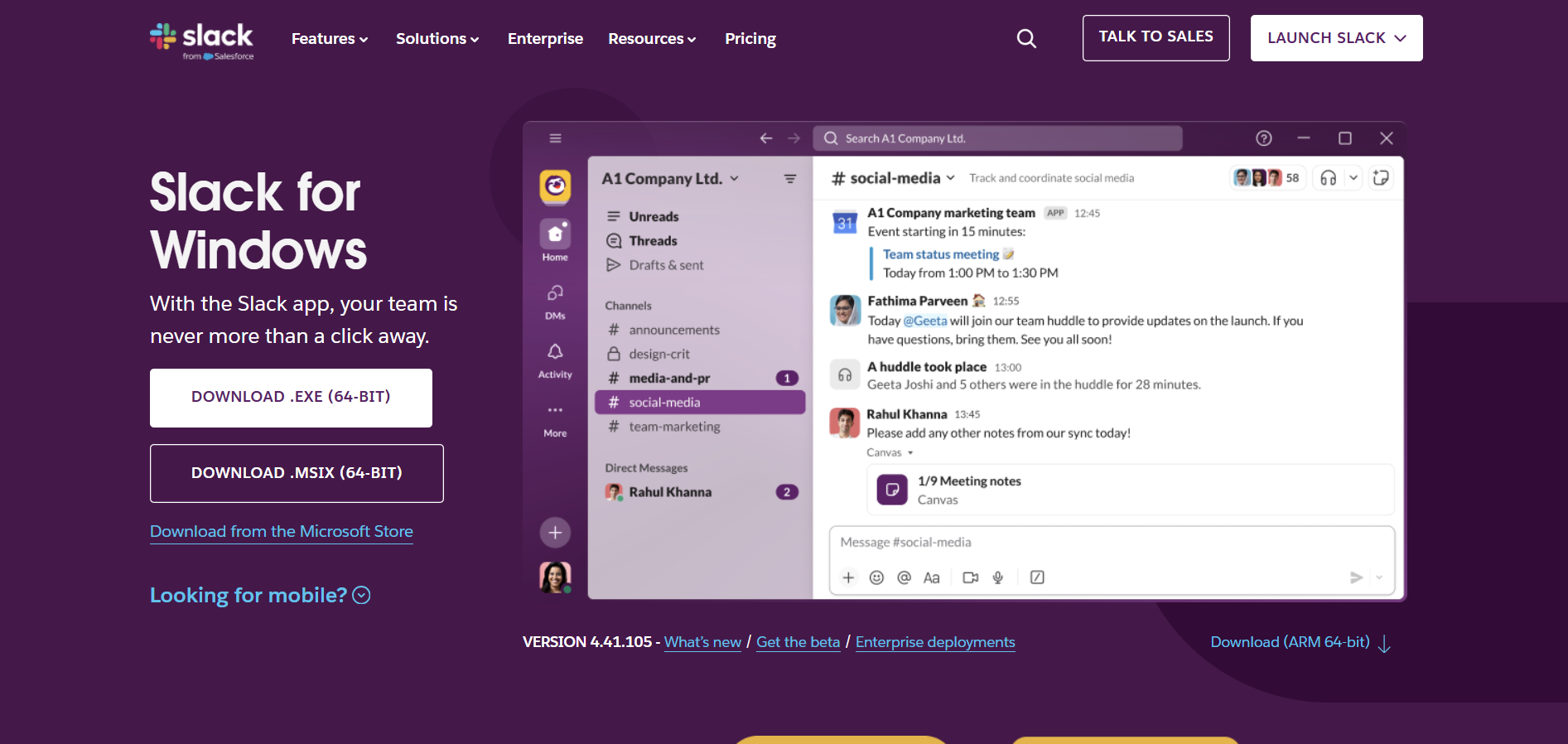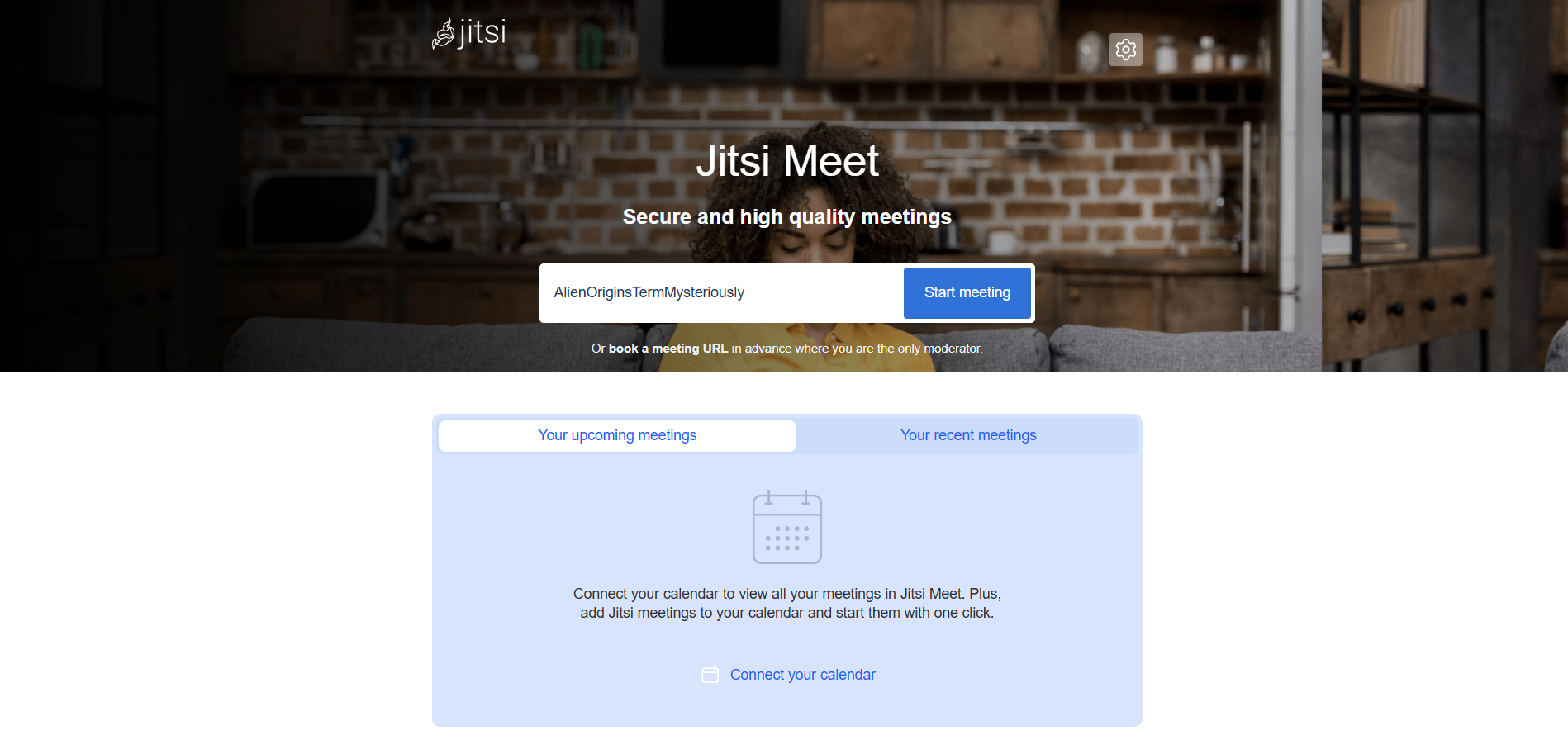Top Skype Alternatives to Enhance Your Communication Experience
Written by: Hrishikesh Pardeshi, Founder at Flexiple, buildd & Remote Tools.
Last updated: Dec 21, 2024
Best Skype Alternatives in 2025 are:
Zoom
Microsoft Teams
Google Meet
Discord
Slack
Jitsi Meet
If you're looking for alternatives to Skype for communication and collaboration, there are plenty of options to choose from. From seamless video conferencing and strong team collaboration tools to specialized communication features, these platforms offer unique benefits that can enhance both your professional and personal interactions.
Table of Contents
Why You Need Alternatives to Skype?
You need alternatives to Skype because Skype is a popular choice but often falls short in providing advanced features and flexibility. Other platforms offer superior video quality, more comprehensive team collaboration tools, and better customization for specific communication needs, making them more reliable and efficient for both professional and personal use.
Furthermore, these alternative platforms for voice and video calls, audio and video calls, and team communication are continuously innovating to meet the ever-changing demands of modern communication. Many of them offer features like AI-powered transcription, real-time language translation, and advanced security protocols to ensure data privacy and compliance with industry standards. This forward-thinking approach makes these platforms an ideal choice for businesses aiming to improve productivity and for individuals seeking a seamless and secure communication experience through group chats, voice calls, and video chat on their mobile phone.
Who Should Consider Using Skype Alternatives?
You should consider using Skype alternatives if you’re seeking more comprehensive communication solutions, better scalability, enhanced security, or specific features that Skype does not offer. Here’s a look at who might benefit from these alternatives:
Businesses and Enterprises
For organizations that require reliable and scalable communication tools to support large teams and complex workflows, alternatives like Zoom and Microsoft Teams offer advanced features such as large-scale webinars, integrated project management tools, and enhanced security protocols.
Remote and Hybrid Teams
Teams that operate remotely or in hybrid environments benefit from tools that facilitate seamless collaboration, real-time document sharing, and integrated communication channels. Platforms like Slack and Google Meet provide these capabilities, making it easier for team members to stay connected and productive regardless of their location.
Educational Institutions
Schools, universities, and other educational institutions need reliable video conferencing and collaboration tools to support virtual learning and remote teaching. Google Meet and Jitsi Meet offer features tailored for educational settings, including screen sharing, breakout rooms, and integration with learning management systems.
Gamers and Communities
For communities and gaming groups that prioritize voice and video communication, Discord provides specialized features such as low-latency voice chat, customizable servers, and integrations with gaming platforms, making it an ideal choice for fostering community engagement.
Freelancers and Small Teams
Freelancers and small teams often require cost-effective communication solutions that offer flexibility and ease of use. Tools like Slack and Zoom provide scalable plans and user-friendly interfaces that cater to the needs of smaller operations without compromising on essential features.
Skype Alternatives Comparison Table
| Feature | Zoom | Microsoft Teams | Google Meet | Discord | Slack | Jitsi Meet |
|---|---|---|---|---|---|---|
| Ease of Use | Very Easy | Moderate | Easy | Easy | Easy | Easy |
| Pricing | Free & Paid Plans | Free & Paid Plans | Free & Paid Plans | Free & Paid Plans | Free & Paid Plans | Free |
| Platform Support | Windows, Mac, Linux, Mobile | Windows, Mac, Linux, Mobile | Browser-based, Mobile | Windows, Mac, Linux, Mobile | Windows, Mac, Linux, Mobile | Browser-based, Mobile |
| Collaboration Features | Extensive | Extensive | Moderate | Extensive | Extensive | Limited |
| Security | High | High | High | Moderate | High | High |
Best Skype Alternatives
If you're looking for more advanced features, better video quality, or enhanced collaboration tools, here are some of the best Skype alternatives to consider.
1. Zoom

Zoom has emerged as one of the most popular alternatives to Skype, especially in the wake of the remote work boom. It offers high-quality video conferencing, robust features, and scalability that caters to both small meetings and large webinars.
Zoom vs Skype
Zoom distinguishes itself from Skype by providing more extensive video conferencing features, including larger participant capacities, breakout rooms, and advanced meeting controls. While Skype is suitable for personal and small-scale professional use, Zoom excels in environments that require more structured and feature-rich virtual meetings.
Key Features of Zoom
High-Quality Video and Audio: Ensures clear and reliable communication.
Breakout Rooms: Facilitates smaller group discussions within a larger meeting.
Webinar Hosting: Supports large-scale online events with up to 10,000 participants.
Screen Sharing and Annotation: Enhances collaboration during meetings.
Recording and Transcription: Allows for easy review and documentation of meetings.
Zoom Pros
User-friendly interface with easy setup.
Reliable performance even with large numbers of participants.
Extensive feature set tailored for business and educational use.
Integration with various productivity tools like Slack and Microsoft Teams.
Strong security features, including end-to-end encryption for certain plans.
Zoom Cons
Free plan has a 40-minute limit on group meetings.
Requires stable internet connection for optimal performance.
Potential security concerns if not properly configured.
Zoom Pricing
Zoom offers a range of pricing options, with its Pro plan starting at $14.99 per month per host. The Business plan is available at $21.99 per month per host, while Enterprise plans require custom pricing.
2. Microsoft Teams

Microsoft Teams is a comprehensive communication and collaboration platform that integrates seamlessly with the Microsoft 365 suite. It is designed to support teamwork through chat, video conferencing, file sharing, and application integration.
Microsoft Teams vs Skype
While Skype primarily focuses on video calls and messaging, Microsoft Teams offers a broader range of collaboration tools, including integrated file storage, project management features, and deep integration with Microsoft Office applications. Teams is ideal for organizations already utilizing Microsoft 365, as it centralizes communication and collaboration in one platform.
Key Features of Microsoft Teams
Chat and Instant Messaging: Facilitates real-time communication among team members.
Video Conferencing: Supports high-quality video meetings with up to 1,000 participants.
Integration with Microsoft 365: Seamlessly connects with Word, Excel, PowerPoint, and other Office apps.
File Sharing and Collaboration: Enables collaborative editing and sharing of documents.
App Integrations: Supports integration with a wide range of third-party applications and services.
Microsoft Teams Pros
Comprehensive feature set for both communication and collaboration.
Deep integration with Microsoft Office and other Microsoft services.
Highly scalable, suitable for small businesses to large enterprises.
Advanced security and compliance features, including data encryption and multi-factor authentication.
Customizable with bots, connectors, and third-party integrations.
Microsoft Teams Cons
Can be complex to navigate for new users due to its extensive features.
Requires a Microsoft 365 subscription for full functionality.
May consume significant system resources during video calls and meetings.
Microsoft Teams Pricing
Microsoft Teams pricing varies, with the Enterprise plan starting at $5.25 per user per month when purchased separately from Office 365.
3. Google Meet

Google Meet is a video conferencing tool that is part of the Google Workspace suite. It is designed to provide secure and reliable video meetings for businesses, educational institutions, and individuals.
Google Meet vs Skype
Google Meet offers seamless integration with other Google Workspace applications like Google Calendar, Gmail, and Google Drive, making it an excellent choice for users already within the Google ecosystem. Unlike Skype, which offers both personal and professional communication features, Google Meet is primarily focused on professional video conferencing and virtual meetings.
Key Features of Google Meet
High-Quality Video and Audio: Ensures clear communication during meetings.
Integration with Google Workspace: Easily schedules and joins meetings via Google Calendar and Gmail.
Real-Time Captioning: Provides live captions to enhance accessibility.
Screen Sharing and Presentations: Facilitates effective collaboration and presentations.
Recording and Transcription: Allows users to record meetings and access transcriptions for future reference.
Google Meet Pros
Simple and intuitive interface with easy access through Google accounts.
No software installation required; accessible via web browsers.
Strong security measures, including encryption and meeting controls.
Scalable for small teams to large organizations.
Integration with Google Workspace enhances productivity and collaboration.
Google Meet Cons
Limited features in the free version compared to paid plans.
Requires a Google Workspace subscription for advanced features.
May have fewer customization options compared to other platforms like Zoom.
Google Meet Pricing
Google Meet's pricing starts at $6 per user per month for the Business Starter plan, with Business Standard at $12 and Business Plus at $18 per user per month.
4. Discord

Discord is a communication platform originally designed for gamers but has expanded to serve a wide range of communities and organizations. It offers voice, video, and text communication channels, along with various community-building features.
Discord vs Skype
Discord provides a more community-oriented approach compared to Skype, which is primarily focused on individual and business communication. Discord’s server-based structure allows for the creation of dedicated channels for different topics, making it ideal for communities, gaming groups, and collaborative projects.
Key Features of Discord
Voice and Video Channels: Enables real-time communication for groups and communities.
Text Channels: Organizes conversations by topics or projects within servers.
Screen Sharing and Streaming: Allows users to share their screens or stream gameplay.
Bots and Integrations: Enhances functionality with automated bots and integrations with other services.
Community Management Tools: Provides moderation tools and customizable roles for server management.
Discord Pros
Highly customizable with a wide range of bots and integrations.
Free version offers extensive features suitable for most users.
Low-latency voice communication ideal for gaming and real-time collaboration.
Strong community-building features, including server creation and management.
Cross-platform support with applications for Windows, Mac, Linux, iOS, and Android.
Discord Cons
Interfaces can be overwhelming for new users due to extensive customization options.
Primarily designed for communities and gaming, which may not suit all professional settings.
Limited video conferencing features compared to dedicated platforms like Zoom and Microsoft Teams.
Discord Pricing
Discord provides a free plan and two paid options: Nitro Basic at $2.99 per month and Nitro at $9.99 per month or $99.99 annually.
5. Slack

Slack is a powerful communication and collaboration platform designed for teams and organizations. It offers a range of features that facilitate real-time communication, project management, and integration with numerous third-party applications.
Slack vs Skype
While Skype is suitable for basic communication needs, Slack provides a more comprehensive solution for team collaboration with organized channels, robust integration capabilities, and advanced search functionalities. Slack is ideal for businesses and teams that require a centralized platform for communication and workflow management.
Key Features of Slack
Channels and Direct Messages: Organizes conversations by topics, projects, or teams.
Integration with Third-Party Apps: Connects with tools like Google Drive, Trello, and Zoom for enhanced functionality.
File Sharing and Collaboration: Facilitates sharing of documents, images, and other files within conversations.
Searchable Archives: Allows users to search through past conversations and files.
Customizable Notifications: Enables users to tailor notification settings based on preferences.
Slack Pros
Organized communication with channels for different topics and projects.
Extensive integration options with a wide range of productivity tools.
Advanced search capabilities make it easy to find past conversations and files.
User-friendly interface with customizable workflows and automation.
Strong security features, including data encryption and compliance with various standards.
Slack Cons
Free version has limitations on message history and integrations.
Can become overwhelming for large teams with numerous channels and messages.
Higher cost for premium plans compared to some other communication tools.
Slack Pricing
Slack's pricing begins at $7.25 per user per month for the Pro plan, with the Business+ plan at $12.50 per user per month.
6. Jitsi Meet

Jitsi Meet is an open-source video conferencing solution that emphasizes privacy and security. It allows users to host their own video meetings or use the free public server without the need for an account.
Jitsi Meet vs Skype
Jitsi Meet, a communication app, stands out from Skype by offering a completely free and open-source platform with a strong focus on privacy and security. Unlike Skype, which is a proprietary communication app, Jitsi Meet allows users to host their own servers, providing greater control over data and meeting configurations.
Key Features of Jitsi Meet
Free and Open-Source: No cost and the ability to customize or host your own server.
No Account Required: Join or start meetings without needing to create an account.
High-Quality Video and Audio: Reliable performance for seamless communication.
Screen Sharing and Recording: Facilitates effective collaboration and documentation of meetings.
End-to-End Encryption: Ensures secure communication between participants.
Jitsi Meet Pros
Completely free with no limitations on meeting duration or participant numbers.
Strong emphasis on privacy and security, with options for self-hosting.
Easy to use with no need for software installation or account creation.
Customizable and extendable through open-source code.
Supports a wide range of devices and platforms via web browsers.
Jitsi Meet Cons
May require technical expertise to self-host and customize.
Lacks some advanced features found in commercial platforms like Zoom and Microsoft Teams.
Performance can vary depending on server hosting and internet connectivity.
Jitsi Meet Pricing
Jitsi Meet stands out by offering its service completely free of charge, with no limitations on meeting duration or participant numbers.
FAQs On Skype Alternatives
1. What are the top alternatives to Skype?
Top alternatives include Zoom, Microsoft Teams, Google Meet, Discord, Slack, and Jitsi Meet, offering a range of features for video conferencing and team collaboration.
2. Why should I consider using an alternative to Skype?
Alternatives offer better features like larger participant capacities, improved integrations, stronger security, and specialized tools tailored to your needs.
3. Are Skype alternatives free to use?
Many Skype alternatives offer free versions with basic features, while premium plans unlock additional tools and integrations.
4. Which Skype alternative is best for large businesses?
Microsoft Teams and Zoom are ideal for large businesses, with scalable features, integrations, and advanced collaboration tools.
5. Can I use Skype alternatives for educational purposes?
Yes, platforms like Google Meet, Zoom, and Jitsi Meet are great for virtual classrooms, offering features like breakout rooms and screen sharing.